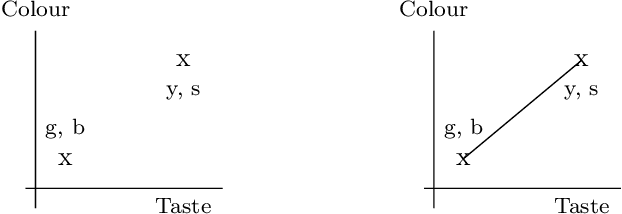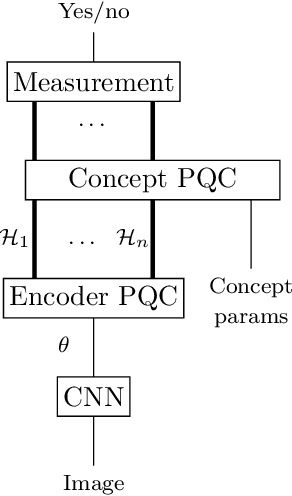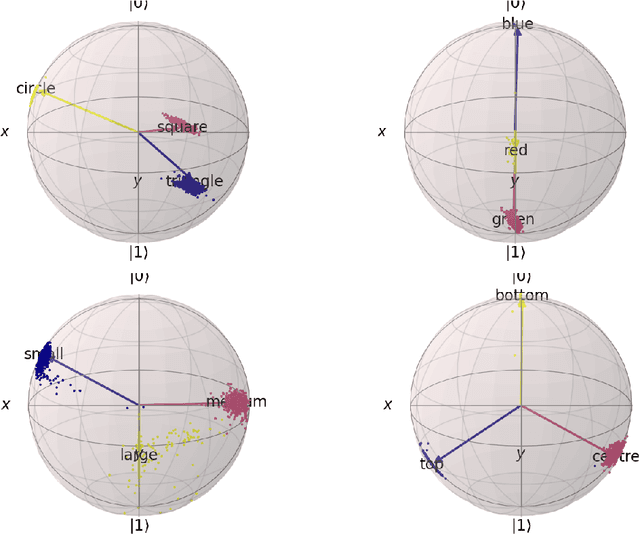Formalising and Learning a Quantum Model of Concepts
Paper and Code
Feb 07, 2023



In this report we present a new modelling framework for concepts based on quantum theory, and demonstrate how the conceptual representations can be learned automatically from data. A contribution of the work is a thorough category-theoretic formalisation of our framework. We claim that the use of category theory, and in particular the use of string diagrams to describe quantum processes, helps elucidate some of the most important features of our quantum approach to concept modelling. Our approach builds upon Gardenfors' classical framework of conceptual spaces, in which cognition is modelled geometrically through the use of convex spaces, which in turn factorise in terms of simpler spaces called domains. We show how concepts from the domains of shape, colour, size and position can be learned from images of simple shapes, where individual images are represented as quantum states and concepts as quantum effects. Concepts are learned by a hybrid classical-quantum network trained to perform concept classification, where the classical image processing is carried out by a convolutional neural network and the quantum representations are produced by a parameterised quantum circuit. We also use discarding to produce mixed effects, which can then be used to learn concepts which only apply to a subset of the domains, and show how entanglement (together with discarding) can be used to capture interesting correlations across domains. Finally, we consider the question of whether our quantum models of concepts can be considered conceptual spaces in the Gardenfors sense.
 Add to Chrome
Add to Chrome Add to Firefox
Add to Firefox Add to Edge
Add to Edge